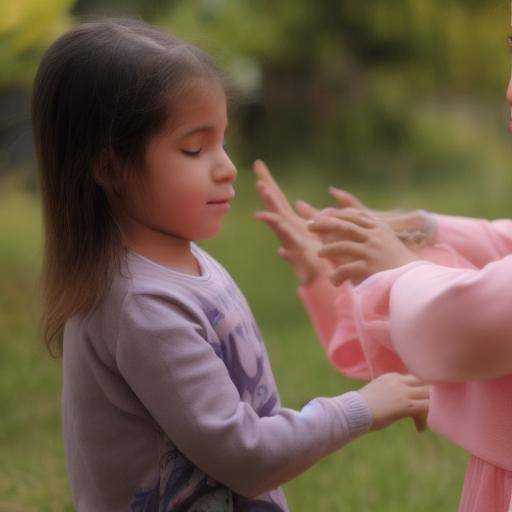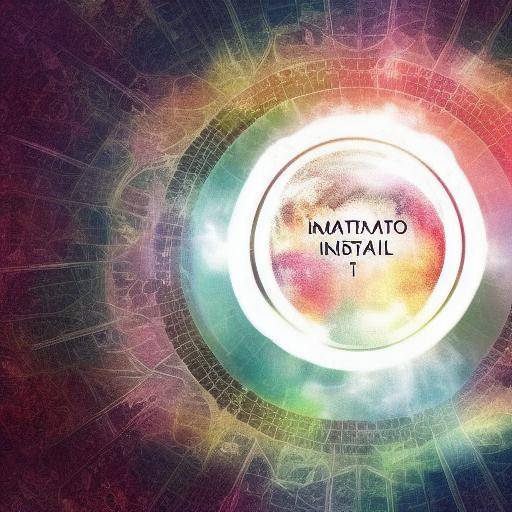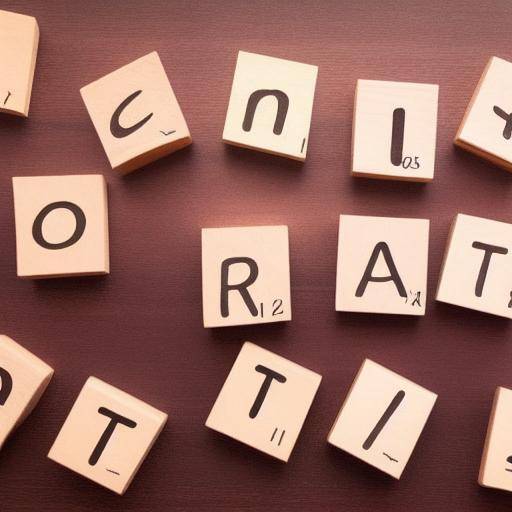
Gratitude is a powerful emotion that, when cultivated actively, can have a significant impact on emotional well-being and on the promotion of positive thinking. In this article, we will explore in detail how gratitude can influence our thinking, feeling and acting, and how we can incorporate it into our daily lives to promote a healthier state of mind. From its history and evolution, through its benefits and challenges, to its practical application and future trends, this comprehensive guide will provide a comprehensive insight into the transforming power of gratitude in promoting positive thinking and emotional well-being.
Introduction
Gratitude is much more than a simple word of courtesy. It is a profound emotion that implies recognizing and sincerely appreciating the good things we have in life, whether large or small. Cultivating gratitude not only allows us to feel better with ourselves and others, but can also trigger a positive domino effect on our thinking and the way we face daily challenges.
History and Background
The practice of gratitude has deep roots in various spiritual and philosophical traditions around the world. From ancient religious teachings to contemporary philosophical currents, the importance of gratitude has been recognized over time. In ancient Greek philosophy, for example, gratitude was regarded as a fundamental virtue that contributed to happiness and personal well-being. Likewise, in spiritual traditions such as Buddhism and Hinduism, gratitude is considered an essential practice for achieving inner peace and harmony with the universe.
The concept of gratitude has also been studied in positive psychology, a field of psychology that focuses on identifying and promoting the qualities that allow individuals and communities to thrive. Positive psychologists have extensively investigated the effects of gratitude on mental and emotional health, and found convincing evidence of their benefits both individually and collectively.
Analysis in Deep
In practicing gratitude on a regular basis, a number of positive effects have been observed on emotional well-being. Scientific studies have shown that people who keep a journal of gratitude or who perform reflection exercises on what they are grateful experience higher levels of satisfaction with life, more positive emotions and greater resilience to stress.
In addition, gratitude is also strongly related to positive thinking. By focusing on what we value and appreciate instead of what we lack, we can change our perspective towards a more optimistic and hopeful mentality. This in turn can influence our approach to everyday challenges, allowing us to find creative solutions and maintain a constructive attitude even in difficult situations.
Comprehensive review
The practical application of gratitude in daily life can take various forms. From expressing gratitude to others to carrying out personal reflection exercises, there are many ways to incorporate gratitude in our day to day to promote positive thinking and emotional well-being. For example, keeping a diary of gratitude in which we regularly write down the things we are grateful for can be a powerful tool to increase our awareness of the blessings we have in our lives.
Comparative analysis
By comparing gratitude to positive thinking and emotional well-being, it is clear that these three dimensions are intrinsically interconnected. Gratitude can be seen as a catalyst for positive thinking, since by focusing on what we value, we naturally tend to develop a more optimistic attitude towards life. Similarly, the practice of gratitude can contribute significantly to our emotional well-being by strengthening our ability to face negative emotions and promote greater mental tranquility.
Practical Tips and Accessible Tips
If we wish to incorporate gratitude into our lives more consciously, there are various strategies and techniques that can be useful. Some practical tips include:
- Take a daily of gratitude to regularly record the things we are grateful for.
- Express our oral thanks to others, recognizing their kind actions and gestures.
- Perform visualization and reflection exercises on the blessings present in our lives.
- Participate in acts of goodness and generosity towards others, promoting a positive cycle of shared gratitude.
Industry Perspectives and Expert Reviews
Several experts in psychology, emotional well-being and personal development have emphasized the importance of gratitude as a powerful tool to promote positive thinking and emotional well-being. According to the psychologist and best-seller writer, Dr. Robert Emmons, gratitude can transform our inner and outer lives, and "can make us more friendly, more compassionate, more human." This approach resonates with the growing attention given to gratitude as an effective practice to promote emotional health and general well-being.
Case Studies and Applications in Real Life
To better understand how gratitude can impact our lives, it is useful to analyze real cases and practical applications. Take, for example, the case of a person who experiences high levels of labor stress. By practising gratitude consciously, this person was able to change his approach to positive aspects of his work, such as peer support, learning opportunities and job stability, which helped him to reduce stress and face challenges with greater calm and clarity.
Future Trends and Predictions
As interest in positive psychology and welfare practices continues to grow, greater attention is expected to gratitude as an effective tool to promote positive thinking and emotional well-being. Further, progress in scientific research on the relationship between gratitude and mental health will provide a solid basis for the development of therapeutic approaches and intervention programmes focused on the practice of gratitude.
Conclusions
In short, gratitude possesses the power to transform our vision of life, promoting positive thinking and strengthening our emotional well-being. By actively cultivating gratitude in our daily lives, we can develop a more optimistic mentality, improve our emotional health and strengthen our relationships with others. Gratitude is not only an emotion, but an attitude that can deepen our lives and contribute to a more compassionate and positive world.
Frequently asked questions
1. Is gratitude the same as being grateful?
Gratitude goes beyond simply feeling grateful in the traditional sense. It implies consciously recognizing the good things we have in our lives and actively appreciating them, which can have a lasting impact on our vision of the world and our emotional well-being.
2. Is the practice of gratitude useful in difficult situations?
Yes, gratitude can be especially beneficial in times of adversity. By focusing on what we value and appreciate, we can find emotional strength and maintain a more balanced perspective, which helps us overcome the challenges with greater resilience.
3. How can I begin to incorporate gratitude into my daily life?
Starting to practice gratitude can be as simple as booking a few minutes each day to reflect on the things we are grateful for. Keeping a diary of gratitude or verbally expressing our gratitude to others are effective ways of starting this process
4. How can gratitude impact my emotional well-being?
Gratitude has shown a positive impact on emotional well-being by promoting positive emotions, reducing levels of stress and anxiety, and strengthening resilience to adversities. By cultivating gratitude, we can experience greater satisfaction with life and greater emotional tranquility.
5. Are there cultural differences in the practice of gratitude?
Yes, expressions of gratitude can vary according to cultures. However, recognition and appreciation for the blessings of life are universal values that transcend cultural differences and can enrich human experience in any context.
6. Does gratitude have lasting effects on positive thinking?
Yes, gratitude can have lasting effects on positive thinking by changing our perspective and approach to a more optimistic and hopeful mentality. By practicing gratitude on a regular basis, we can strengthen our emotional resilience and maintain a constructive attitude in various situations.
These frequent questions address the most common doubts about gratitude, its relation to positive thinking and its impact on emotional well-being, providing a more comprehensive and detailed view on this relevant topic.
This article has thoroughly explored the connection between gratitude, positive thinking and emotional well-being, providing an integral guide to understanding the transforming power of gratitude in our lives. By recognizing and appreciating the blessings that surround us, we can nurture a positive mentality and strengthen our emotional health, creating a significant impact on our quality of life. By fostering gratitude in our day to day, we can open the door to a path of emotional well-being and a more optimistic perspective, which not only benefits our individual lives, but also contributes positively to society as a whole.






















































